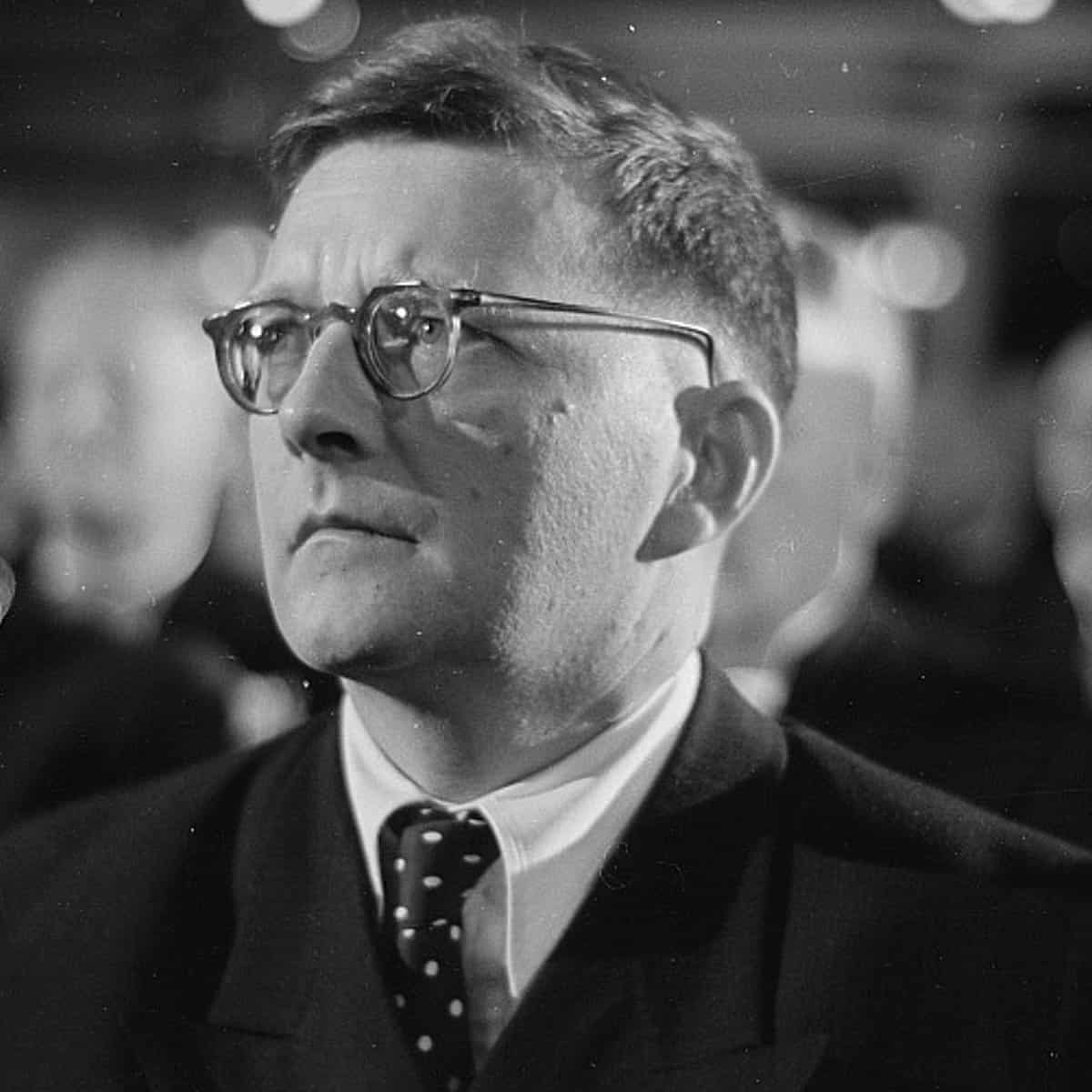
The Soviet crackdown on composers in February 1948 remains, over half a century later, one of the most devastating examples of government interference and censorship in history. Prokofiev, Shostakovich, Khachaturian, Miaskovsky, and others were excoriated for their “formalistic distortions and anti-democratic tendencies” and for writing “confused, neuropathological combinations which transform music into cacophony.” These composers were forced to make public apologies, and—in those frosty early days of the Cold War—they promised to write more “progressive” music, in tune with the ideals of the Revolution.
Preview on Spotify:
Shostakovich, who had met with government disfavor in 1936 during the period of Stalin’s “Great Terror,” began to write two kinds of music. The “public” Shostakovich wrote what would now be described as politically-correct scores, intended to satisfy Soviet officials with their ideological purity: the oratorio Song of the Forests, the cantata The Sun Shines over Our Motherland, the film score The Fall of Berlin, and a choral cycle with the numbing title Ten Poems on Texts by Revolutionary Poets. The “private” Shostakovich, however, wrote the music he wanted to, but held it back, waiting for a more receptive climate. The death of Stalin in March 1953 brought a slight political and artistic thaw, and Shostakovich could bring out these scores: the First Violin Concerto, composed in 1947, but not premiered until 1955; the song cycle From Jewish Folk Poetry, written in 1948 and first performed in 1955; and the Fourth and Fifth String Quartets, written respectively in 1949 and 1952, but not played until 1953.
Shostakovich’s Fourth String Quartet is almost as interesting for what it is not as for what it actually is. This music is remarkable for its restraint. All four movements are at a moderate tempo (three Allegrettos and one Andantino), and the work is marked by an emotional reserve as well. There are no dramatic extremes here—this music is spare, understated, lean, at times almost bleak. Harmonically, it alternates moments of simple diatonic melodies (even unisons) with episodes of grinding dissonance. And at the end it fades into silence on the same note of emotional restraint that has marked the entire quartet.
Shostakovich Saturday Morning Series
4 Saturdays at 10am
1/21, 2/4, 3/4 and 5/13, 2017
Herbst Theatre
$55/$45/$30
TICKETS
FEBRUARY 4:
Quartet No. 3 in F Major, Op. 73
Quartet No. 4 in D Major, Op. 83
MARCH 4:
Quartet No. 5 in B-flat Major, Op. 92
Quartet No. 6 in G Major, Op. 101
MAY 13:
with Roger Woodward, piano
Piano Quintet in G minor, Op. 57
Quartet No. 7 in F-sharp minor, Op. 108
The opening Allegretto is quite brief (only three minutes), just long enough to lay out two themes but not long enough to develop them in a significant way. The music moves from the quiet beginning, built on constantly changing meters, to a full-throated restatement; more lyric secondary material leads to a quiet close on a unison D three octaves deep. The Andantino at first feels somewhat more settled. Its wistful opening, which belongs largely to the first violin, is in straightforward F minor, but again the music grows more turbulent as the movement proceeds; it closes with a quiet reprise of the opening material, now played muted.
The third movement, muted throughout, is scherzo-like in its fusion of quick-paced themes, from the cello’s propulsive opening to a more animated second subject; in the course of the movement, each of the four instruments takes a turn with this second melody. Unmuted solo viola leads the way into the finale over pizzicato accompaniment from the other voices. The first violin’s main theme here has a pronounced “Jewish” character—it is a lamenting tune, built on tight intervals, sharp accents, and fleeting dissonances. This movement, longest in the quartet, rises to an almost orchestral climax full of tremolos, unisons, and huge chords, then fades away on a haunting coda as the two violins in fourths restate the main theme. Over a sustained cello harmonic the upper voices lapse into silence on quiet pizzicatos.
Small wonder that Shostakovich kept this music hidden during the Stalin years. It is far from the “progressive” and popular music the Soviet government wanted, and while this quartet has been admired for its lucidity, it is nevertheless troubling music, remarkable for its leanness, its restraint—and its bleakness.
